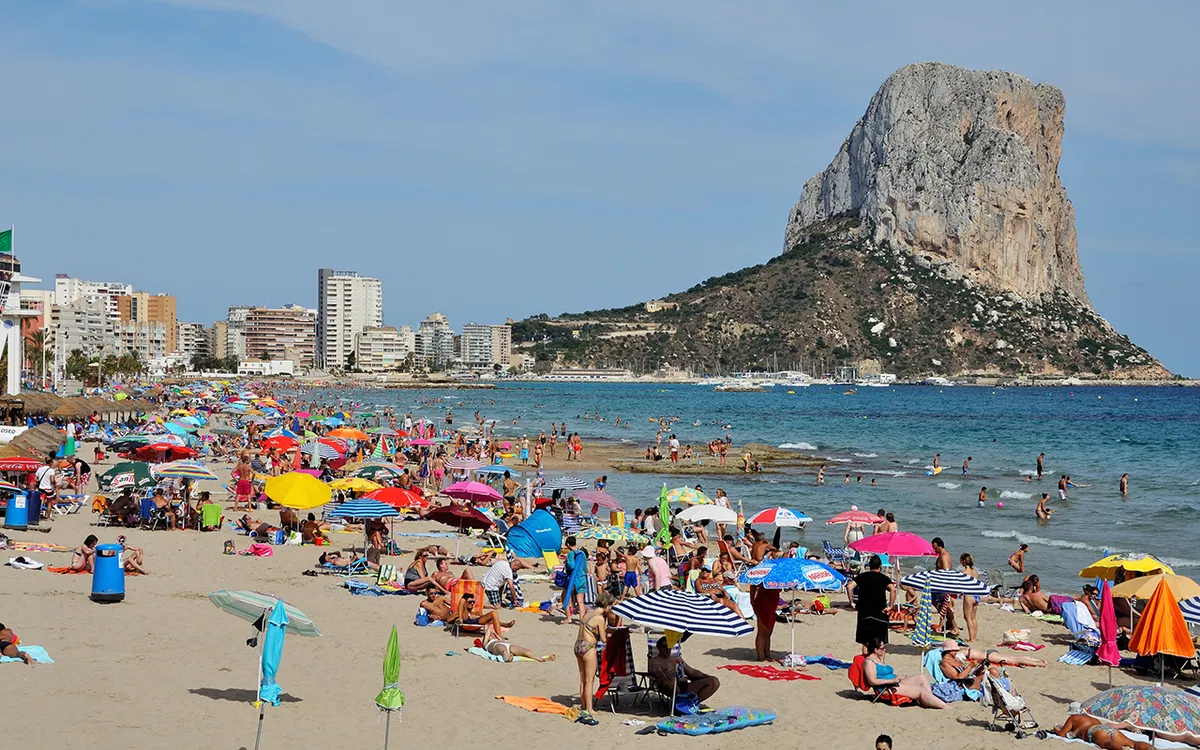By Santiago Carneri
A section of Arenal-Bol beach in Calpe has reopened on Friday 4 July to swimmers after water quality tests confirmed the sea is in “excellent” condition, according to the local council. The bathing ban, which had affected the stretch of coast near the mouth of the Quisi ravine, was lifted following the latest analysis of water samples, carried out by the regional Directorate-General for Water.
“The results of the water analyses of the Arenal-Bol beach reveal that it is in an excellent state, which is why the Town Council has reopened the section of the beach at the mouth of the Quisi ravine for bathing,” said Calpe city council in an official statement.
The reopening comes after a temporary closure prompted by a suspected case of wastewater pollution. Discoloured water had been observed flowing into the Mediterranean from the ravine, prompting concern from both the city council and the regional department of environment (Conselleria de Medio Ambiente).
In response, the local authorities quickly cordoned off the affected area and raised the red flag to signal a bathing ban on Thursday 3 July. They also removed the blue flag — an international symbol of environmental quality — and constructed a temporary sand barrier at the ravine’s mouth to prevent further discharge into the sea.
These precautionary measures remained in place while new samples were taken and analysed. The recent results, released on Wednesday, confirm that the water quality meets the required safety standards for bathing, allowing the beach to reopen just in time for the summer high season.
Environmental authorities
This incident follows a similar episode earlier this year in the La Safor region, where beaches in Xeraco, Daimús, and Tavernes de la Valldigna were closed on Wednesday 2 February due to bacterial contamination. Tests at various coastal points revealed levels of intestinal enterococci — bacteria associated with faecal pollution — that were more than twice the legal limit.
Environmental authorities suspect sewage leaks may have caused the contamination in La Safor and have launched investigations in collaboration with local councils. Efforts are focused on the Canal in Tavernes and the Serpis and Vaca rivers, where inspections aim to determine whether any unauthorised discharges have occurred.
Both the Calpe and La Safor cases have highlighted growing concerns over water quality along the Valencian coastline. Regional and municipal authorities have pledged to increase monitoring efforts and invest in early warning systems to protect public health and the environment throughout the busy summer months.
Stay tuned with Euro Weekly News for the latest news about Europe and Costa Blanca.
